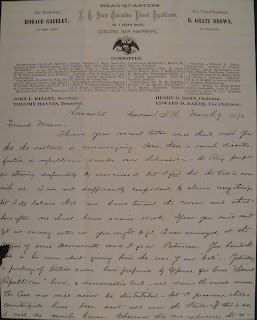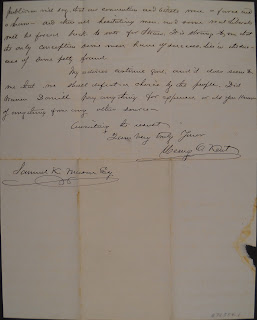 What happens when a candidate passes away during an election? When Horace Greeley lost the 1872 election, he lost a lot more than his pride. In fact, Greeley died before the Electoral College even cast their votes – but after the popular election was over. How does an election continue with one of the major contenders dead?
What happens when a candidate passes away during an election? When Horace Greeley lost the 1872 election, he lost a lot more than his pride. In fact, Greeley died before the Electoral College even cast their votes – but after the popular election was over. How does an election continue with one of the major contenders dead?The 1872 election was framed by the Liberal Republicans and Democrats as "anyone but Grant." Liberal Republicans split from the incumbent president, Ulysses S. Grant, and the Radical Republicans in 1870. In 1872, they nominated Horace Greeley to represent the party. The Democrats, who Greeley had clashed with in the past, decided to back Greeley as well, in hope of getting Grant out of office. However, Grant had too much support and momentum. While both parties backed Greeley, neither had a strong sense of loyalty to the poor campaigner. Grant won 286 electoral votes and Greeley 66.
Only 25 days after the general population voted, Greeley died. The election and the death of his wife had driven him to overwhelming psychological and physical breakdowns. In light of a situation that had never been encountered before (or since), the Electoral College was unsure on how to proceed. Some voted for Greeley, despite his death. These votes were invalid. Most cast their votes for other Democrats, though, unsurprisingly, none were able to make a sizeable dent in Grant’s lead. Grant went on to four more years as President, and the issue of a President dying in election has not been dealt with since.
For a dead man to lose the election is tragic, but politically resolvable. While Grant had clearly won the 1872 election, polls are much closer this year so dealing with the death of a candidate would likely be more complicated. There is no federal mandate on how the Electoral College votes; logically the parties would instruct electors on their chosen plans of action, whether it be to elect the Vice President or to select a new candidate.
For the Election poster ask for Broadside 872900.2, the letter on the election is MS 872554.1.
Posted for Kate Taylor '13


No comments :
Post a Comment